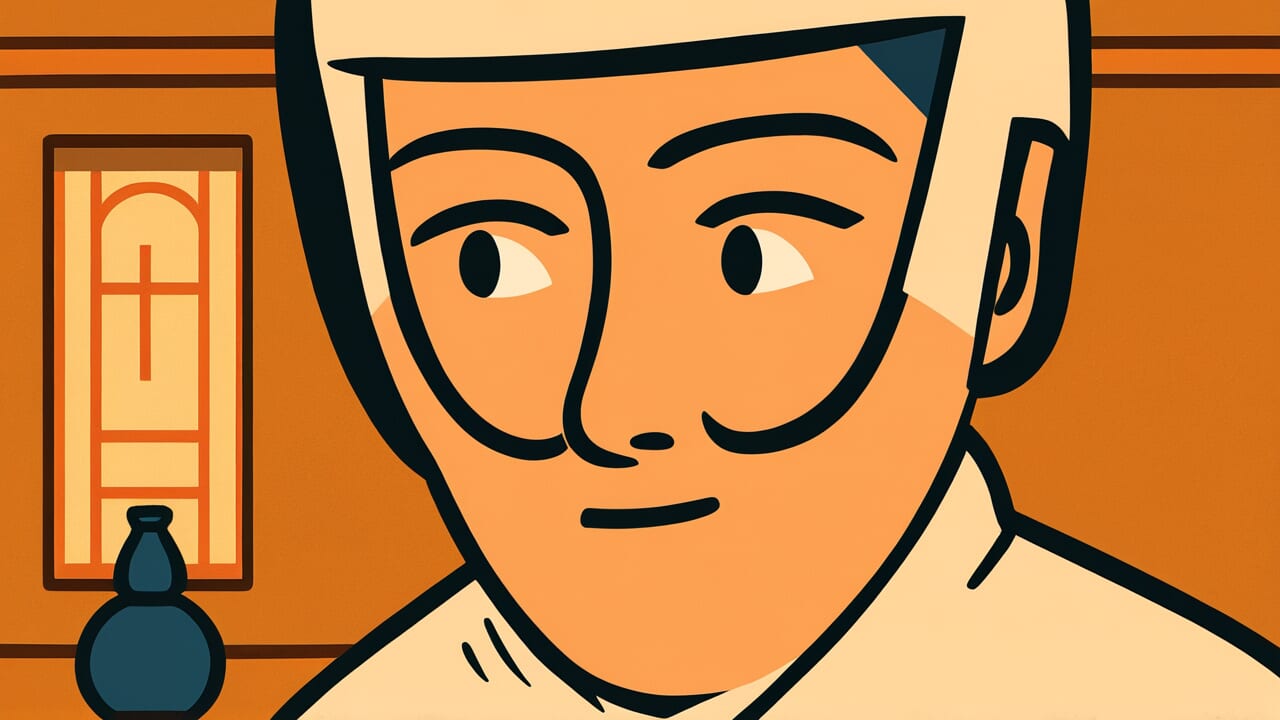How to Read “Tell a nun to grow a beard”
Bikuni ni hige dase
Meaning of “Tell a nun to grow a beard”
“Tell a nun to grow a beard” means making an impossible demand or an unreasonable request. It describes situations where someone asks for something that cannot be achieved no matter how hard you try, like ordering a female nun to grow a beard.
This proverb criticizes the act of imposing unreasonable demands without considering the other person’s abilities or circumstances.
Common situations include a boss giving employees impossible quotas, or parents expecting perfection from their children beyond their age and ability.
Even today, you can use this expression when facing unreasonable demands to communicate “that’s impossible.” However, since it’s a somewhat old-fashioned phrase, you’ll see it more often in written text than in everyday conversation.
This proverb contains both irony toward those making impossible demands and sympathy for those suffering under them.
Origin and Etymology
No clear written records explain the origin of this proverb, but we can make interesting observations from its components.
“Bikuni” refers to women who have entered Buddhist monastic life. The image of nuns shaving their heads, living simply, and following strict precepts through rigorous training was widely familiar to Japanese people throughout history.
Biologically, women cannot grow beards. So demanding that a nun “grow a beard” asks for something fundamentally impossible to achieve.
This proverb likely emerged from the many situations in Edo period commoners’ lives where they faced unreasonable demands.
In an era with strict social hierarchies where orders from above were absolute, people surely encountered demands that were clearly impossible. This proverb probably expressed such situations with humor mixed in.
By using the religious figure of a nun, the saying may express not just “impossible demands” but unreasonableness so extreme it goes against divine and Buddhist principles.
The word choice reveals the wit and sense of humor of people from that time.
Usage Examples
- Assigning a new employee a year’s worth of work in one week is like telling a nun to grow a beard
- Demanding perfect results without budget or staff is like telling a nun to grow a beard
Universal Wisdom
The proverb “Tell a nun to grow a beard” offers sharp insight into the asymmetry of power that has long existed in human society and the unreasonableness born from it.
Why do people make impossible demands? Because those making demands either don’t understand the other person’s reality or refuse to try.
Those with power often see things only from their own perspective and cannot imagine the difficulties faced by those who must execute their orders.
In their focus on results, they ignore the reality of the process.
This proverb has been passed down through generations because unreasonable demands like these have existed in every era and every society.
The structure where those in higher positions force unreasonable expectations on those below is a universal problem in human society.
What’s interesting is that this proverb contains humor. By using the comical image of “a nun with a beard,” it shows the common people’s wisdom of trying to laugh off unreasonableness.
Rather than direct criticism, wrapping it in humor became a way to survive harsh realities.
Humans have faced absurdity through laughter and maintained their peace of mind.
When AI Hears This
Looking at how beards grow reveals just how biologically solid the “impossibility” in this proverb really is.
Men grow facial hair because testosterone binds with receptors in hair follicles and transforms soft hair into coarse hair.
The sensitivity of these receptors is determined by genes, and women’s bodies have only one-tenth to one-twentieth the testosterone concentration of men.
In other words, beards aren’t just hair but the result of multiple layers of hormonal environment and gene expression.
What’s fascinating is that humans chose this biological constraint as a symbol of “absolute impossibility.”
For example, demanding someone “fly in the sky” is also impossible, but tools can overcome that. However, physical characteristics from sexual dimorphism represent constraints that cannot be changed through individual effort or ingenuity.
People have recognized this for thousands of years. This proverb chose not technological impossibility but biological impossibility.
Modern medical technology has made hormone therapy possible, so growing a beard isn’t actually impossible anymore.
However, when this proverb was created, people recognized sex differences as “absolute boundaries set by God.”
In other words, this proverb crystallized into language the intuitive knowledge that “physical sex differences cannot be changed” that humanity acquired through its long evolutionary history.
Lessons for Today
This proverb teaches modern people about the heavy responsibility of those making demands.
When you’re in a position to ask something of someone, you need to pause and consider whether it’s truly achievable and whether you understand the other person’s situation.
Especially in modern society, with its emphasis on results and speed, you might unknowingly be “telling a nun to grow a beard.”
Are you demanding perfection with limited time, budget, and personnel?
If you’re on the receiving end of unreasonable demands, this proverb gives you courage to recognize “that’s impossible.”
You don’t need to push yourself to meet every demand. It’s important to calmly communicate when something cannot be done.
In human relationships too, understanding each other’s reality and cooperating within achievable ranges builds trust.
Unreasonable demands destroy relationships, but realistic dialogue deepens bonds.
This proverb still speaks to us today about the importance of respecting each other’s limitations.



Comments